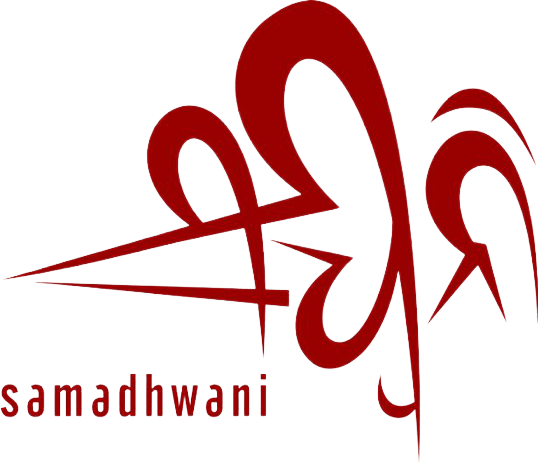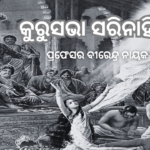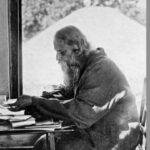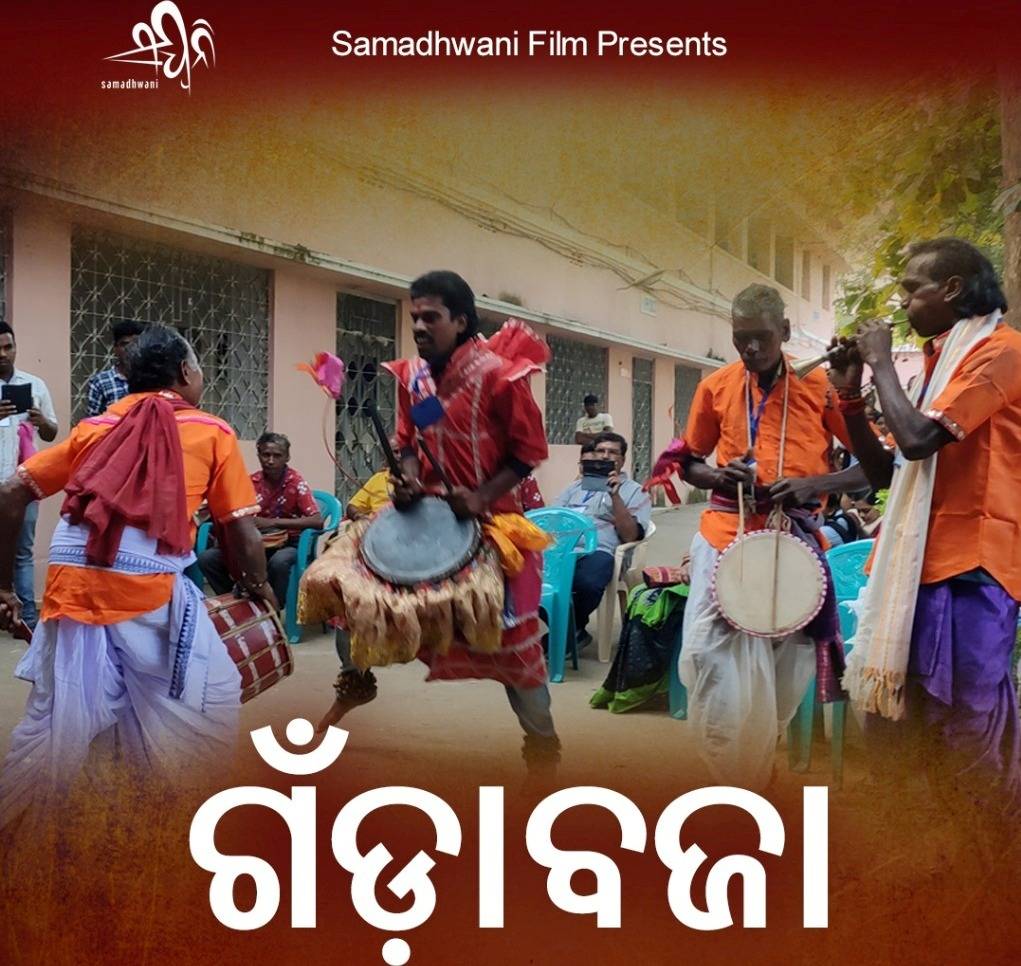In the last chapter, when delving into the subject of Taalim, it seemed fitting to recount the tales of the renowned sitar maestros and their journey of learning. The first luminary who naturally emerged in my thoughts was the illustrious Ustad Baba Allauddin Khan, who imparted his invaluable teachings to numerous instrumental stalwarts. Ustad Baba Allauddin Khan, a revered and accomplished musician himself, played a pivotal role as a mentor in shaping the careers of many eminent sitar players. His reputation as a masterful teacher and profound musical insights attracted aspiring disciples from far and wide. Any conversation about the taalim in sitar would invariably bring up the fascinating tale of Baba Ustad Allauddin Khan, the revered maestro who stands as a pillar of sitar music. Baba Allauddin Khan was not only an exceptional musician but also a versatile artist who played a pivotal role in shaping and nurturing a generation of sitar virtuosos, each with their own unique musical identity. His profound influence continues to resonate through the lineage of his accomplished disciples, who carry forward his invaluable legacy. He was a multi-instrumentalist and could play several instruments with great proficiency, including the sarod, sitar, surbahar, and violin. He was also an exceptional vocalist. Ustad Allauddin Khan was a versatile musician and composer who contributed significantly to the development and enrichment of the Hindustani classical music tradition.
One of his most notable contributions was the creation of the Senia Maihar Gharana, a school or lineage of music that combined elements of various styles, including the Dhrupad and Khayal traditions. He also incorporated aspects of other Indian classical music traditions, such as Carnatic music, into his compositions. Ustad Allauddin Khan was not only a great musician but also a dedicated teacher. He had numerous disciples, many of whom went on to become accomplished musicians themselves. Some of his most famous students include Ravi Shankar, Ali Akbar Khan, Nikhil Banerjee, Annapurna Devi etc. He believed in imparting knowledge without discrimination and accepted students from different backgrounds and approaches to music.
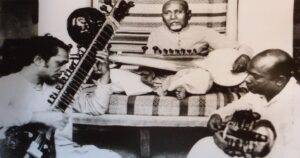
He believed in the importance of direct interaction and personalized guidance to nurture the student’s musical abilities.
It is truly astounding to consider that Baba Allauddin Khan, a maestro who did not play the sitar himself, had the remarkable ability to foster and cultivate some of the greatest sitar players of his time. Despite not being a practitioner of the instrument, he possessed an extraordinary insight into the nuances and intricacies of sitar music. Through his profound understanding of music as a whole and his innate teaching skills, he was able to guide and shape his disciples into becoming exceptional sitar players. His unique approach and unparalleled ability to recognize and nurture talent solidify his status as a legendary guru in the realm of sitar music. Not just the music, Baba provided comprehensive training to his students. He focused on developing a strong foundation in the fundamental aspects of music, including swara (notes), tala (rhythm), and laya (tempo). He emphasized the importance of mastering the basic techniques before progressing to more complex compositions and improvisations. He taught the aesthetics, theory, and philosophy behind the music, emphasizing his disciples to develop a deep understanding of the music’s emotional and spiritual aspects, promoting a holistic approach to music education. Baba recognized the unique strengths and weaknesses of each student and tailored his teaching approach accordingly. He would assess the student’s capabilities and guide them in a manner that suited their individual learning style and potential.
Ustad Allauddin Khan, being deeply rooted in traditional Indian Classical Music, had a remarkable openness to different styles and genres of music. He believed in exposing his students to diverse musical traditions, understanding that such exposure could expand their musical horizons and stimulate their creativity. A notable example of his genius in exploring varied forms of music is the formation of the Maihar Band. The Maihar Band was an ensemble that Ustad Allauddin Khan created, comprising musicians from different backgrounds and instrumental expertise. This band was not limited to Indian classical music but ventured into various genres and styles, including folk music, devotional music, and even Western classical music. Ustad Allauddin Khan integrated these diverse influences into the performances of the Maihar Band, showcasing his deep musical understanding and adaptability. By establishing the Maihar Band, Ustad Allauddin Khan demonstrated his belief in the power of cross-cultural collaboration and the enrichment that arises from embracing different musical expressions. This approach not only broadened the musical horizons of his students but also contributed to the evolution of Indian classical music itself. Ustad Allauddin Khan’s vision and ability to explore and appreciate diverse musical forms left an indelible mark on his students, including the renowned musician Pandit Ravi Shankar. Ravi Shankar, being one of his most accomplished disciples, carried forward this spirit of openness and experimentation in his own musical journey, blending Indian classical music with various genres and collaborating with artists from around the world. The formation of the Maihar Band stands as a testament to Ustad Allauddin Khan’s genius and his recognition of the value of embracing musical diversity. His teachings and philosophy continue to inspire musicians to explore beyond boundaries and create innovative and transcendent musical experiences.
Through his teaching, Ustad Allauddin Khan nurtured numerous talented musicians who went on to make significant contributions to Indian classical music. His teachings continue to inspire and shape the understanding and practice of Indian classical music to this day.
Pandit Ravi Shankar had a significant and transformative relationship with Baba Allauddin Khan. Ravi Shankar, who went on to become one of the most prominent Indian classical musicians and sitar virtuosos of the 20th century, was a devoted disciple of Ustad Allauddin Khan. Under the tutelage of Baba Allauddin Khan, Ravi Shankar received a rigorous and comprehensive musical education. He learned not only sitar but also other instruments such as surbahar and tabla. Ustad Allauddin Khan taught Ravi Shankar the intricacies of ragas (melodic frameworks), tala (rhythm), and the nuances of improvisation. The relationship between Ravi Shankar and Baba Allauddin Khan went beyond that of a traditional guru and disciple. They developed a deep bond and a strong musical partnership. Ustad Allauddin Khan recognized Ravi Shankar’s exceptional talent and nurtured his creativity, giving him the freedom to explore and innovate within the classical music tradition. Ravi Shankar, under the guidance of Ustad Allauddin Khan, not only learned the traditional repertoire and techniques of the Maihar Gharana but also brought his own creativity and innovations to the art form. He expanded the possibilities of the sitar and explored new musical concepts, collaborating with Western musicians and introducing Indian classical music to a global audience.
Ravi Shankar’s association with Baba Allauddin Khan lasted for several decades. He remained a devoted disciple and continued to learn from him until Baba Allauddin Khan’s death. Even after Ustad Allauddin Khan’s demise, Ravi Shankar carried forward his guru’s teachings, playing a vital role in preserving and promoting the Maihar Gharana lineage. The guidance and training received from Baba Allauddin Khan played a pivotal role in shaping Ravi Shankar’s musical career. Ravi Shankar’s mastery over the sitar and his ability to bridge the gap between Indian classical music and Western audiences owe much to the teachings and influence of Ustad Allauddin Khan. The impact of their relationship extended beyond the realm of their individual accomplishments. Both Ravi Shankar and Ustad Allauddin Khan played a crucial role in popularizing Indian classical music and establishing it as a global art form. Their collaboration and efforts contributed to the cultural exchange between the East and the West and created a broader appreciation for Indian classical music worldwide.
The legacy of Ustad Baba Allauddin Khan’s taalim lives on through the remarkable contributions of his disciples. Their exceptional achievements stand as a testament to the brilliance of their guru and the transformative power of his teachings. The profound impact of Ustad Allauddin Khan’s taalim continues to resonate through the generations, inspiring countless sitar maestros to strive for excellence and perpetuate the glorious traditions of Indian classical music.
